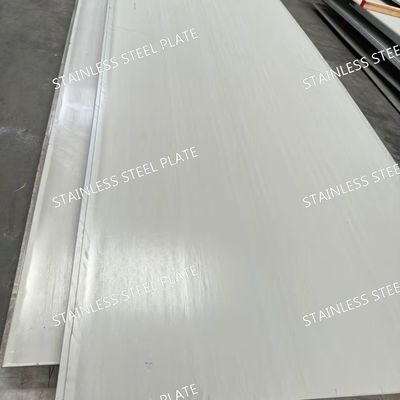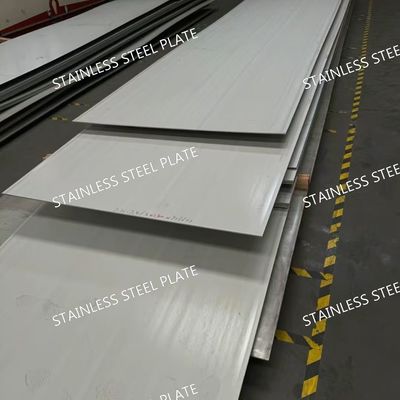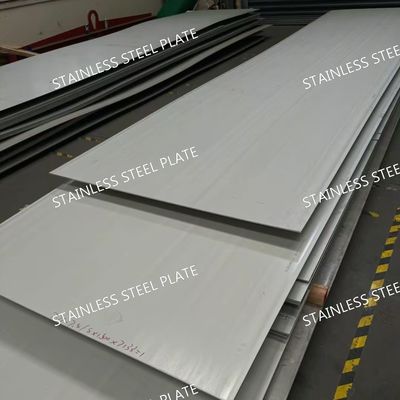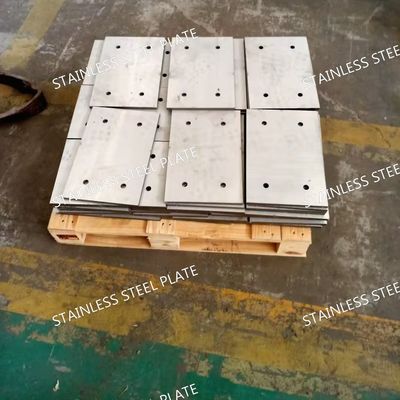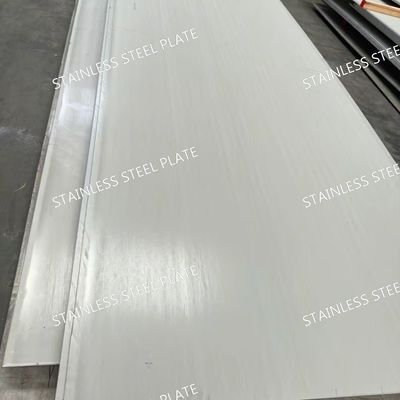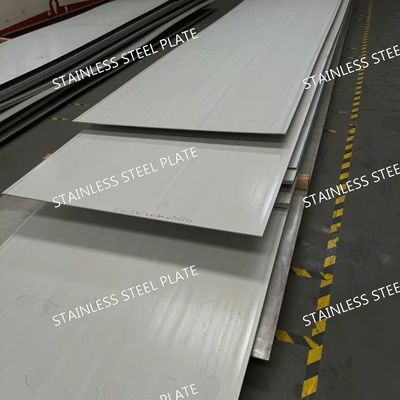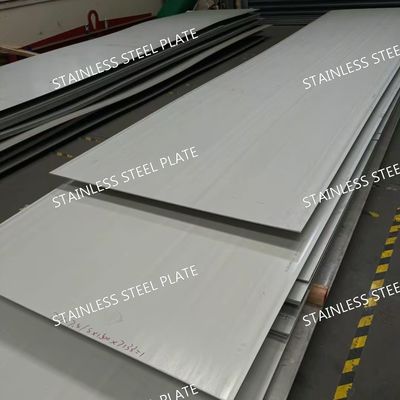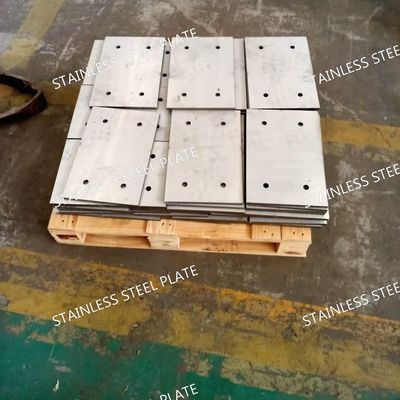-
 Raian IonescuQualidade material muito boa. nós temos cooperar mais de 10 anos. Trocam tipos dos lotes do material de aço. Toda a qualidade material boa. Eles dever para toda a qualidade material. Nós estamos aplanando para continuar a cooperar no futuro com eles
Raian IonescuQualidade material muito boa. nós temos cooperar mais de 10 anos. Trocam tipos dos lotes do material de aço. Toda a qualidade material boa. Eles dever para toda a qualidade material. Nós estamos aplanando para continuar a cooperar no futuro com eles
Placa de aço inoxidável de 317L durável para equipamentos alimentares e farmacêuticos
| Lugar de origem | China |
|---|---|
| Marca | BAOSTEEL TISCO |
| Certificação | ISO |
| Número do modelo | 317L / S31703 |
| Quantidade de ordem mínima | 50 kgs |
| Preço | 5 - 8 USD/Kg |
| Detalhes da embalagem | Embalagem padrão para exportação |
| Tempo de entrega | 5 - 12 dias com base na quantidade |
| Termos de pagamento | L/C, T/T, Western Union |
| Habilidade da fonte | 20ton por semana |
| Produtos | Chapa de aço inoxidável | Nota | 317L/S31703 |
|---|---|---|---|
| Grossura | 1,0-80,0 mm | Tecnologia | laminado a frio, laminado a quente, forjado |
| Largura | 1000mm 1219mm 1500mm ou costumes como o pedido | Superfície | 2B VAGABUNDOS No.1 |
| Padrão | RUÍDO DO EN DE ASTM GB JIS | Quantidade mínima | 1 tonelada |
| Destacar | placa 317L de aço inoxidável,Chapa de aço inoxidável de qualidade alimentar,Equipamento farmacêutico |
||
Placa de aço inoxidável 317L durável para equipamentos alimentícios e farmacêuticos
Especificações da chapa de aço inoxidável
| Nome | Chapa de aço inoxidável 317L |
| Nossa nota |
Série 200: 201 202 Série 300: 301 304.304L,304H,309S,310S,314.316L,316Ti,316H,316LN,317L,321.329.347 Série 400: 409L,410.410S,416.420.430.431.436L.439.441.443.444.445.446 Super aço inoxidável: 904L, 926.254SMO, 654SMO, 15-5PH, 17-4PH, 17-7PH.etc Liga de níquel: C276, C22, G35, Liga X, Monel 400, K500, Inconel 600.601.617.625.718, Incoloy 800.800H, 800HT, 825.etc |
| Técnica | Laminado a quente, laminado a frio, forjado |
| Padrão | JIS, AISI, ASTM, RUÍDO, TUV, BV, SUS, etc. |
| Grossura | 0,1 – 80,0 mm |
| Faixa de largura | 10 mm – 2.000 mm |
| Comprimento | Personalizado |
| Terminar | 2B, BA, No.4, 8k, escovado, linha fina, revestimento PVD, jateado |
| Serviço | Corte a laser, dobra |
| Amostra | Disponível |
Introdução
Nas indústrias alimentícia e farmacêutica, a escolha dos materiais para os equipamentos é fundamental para garantir o desempenho e a segurança.Aço inoxidável 317Lganhou amplo reconhecimento nesses setores devido à sua excelente resistência à corrosão, propriedades mecânicas e facilidade de limpeza. Como uma versão de baixo carbono do317 aço inoxidável,317Loferece desempenho aprimorado em ambientes onde alimentos, produtos químicos ou farmacêuticos são processados, armazenados e transportados. Esta liga é particularmente conhecida por sua resistência à corrosão por pite, corrosão em frestas e fissuração por corrosão sob tensão, tornando-a a melhor escolha para aplicações sanitárias.
A demanda poraço inoxidável durávelplacas nocomidaeindústrias farmacêuticasé impulsionado pela necessidade de materiais que possam resistir a métodos de limpeza agressivos, manter sua integridade estrutural em ambientes agressivos e atender a padrões regulatórios rigorosos. Neste artigo, exploraremos os benefícios dePlaca de aço inoxidável 317Lnessas aplicações críticas, suas principais propriedades e como sua durabilidade e confiabilidade o tornam um material ideal para as indústrias alimentícia e farmacêutica.
O que é aço inoxidável 317L?
Aço inoxidável 317Lé umaço inoxidável austeníticoliga que inclui uma alta porcentagem decromo (Cr),níquel (Ni), emolibdênio (Mo). O baixo teor de carbono desta liga (≤ 0,03%) reduz o risco de precipitação de carboneto durante a soldagem, melhorando a resistência do material à corrosão intergranular. Oferece desempenho superior em ambientes expostos a cloretos, ácidos e outras substâncias corrosivas.
A composição da liga de317Lconfere-lhe uma resistência excepcional à corrosão geral e localizada, tornando-o particularmente adequado para ambientes que exigem limpeza e resistência a reações químicas, como os de processamento de alimentos, produção de laticínios, fabricação farmacêutica e biotecnologia.
| Elemento | Faixa de composição (%) | Função |
|---|---|---|
| Cromo (Cr) | 18h00 – 20h00 | Forma uma camada de óxido passiva estável que protege contra a corrosão. |
| Níquel (Ni) | 11h0 – 15h00 | Melhora a tenacidade e a resistência à fissuração por corrosão sob tensão. |
| Molibdênio (Mo) | 3,0 – 4,0 | Aumenta a resistência a corrosão sob tensão, fissuras e corrosão sob tensão induzida por cloreto. |
| Manganês (Mn) | ≤ 2,0 | Estabiliza a estrutura austenítica e aumenta a resistência. |
| Carbono (C) | ≤ 0,03 | O baixo teor de carbono reduz o risco de sensibilização durante a soldagem. |
| Silício (Si) | ≤ 1,0 | Aumenta a resistência à oxidação em altas temperaturas. |
| Fósforo (P) | ≤ 0,045 | Evita a fragilização e mantém as propriedades mecânicas. |
| Enxofre (S) | ≤ 0,030 | Melhora a usinabilidade e reduz defeitos no aço. |
OmolibdênioemAço inoxidável 317Lé particularmente valioso em aplicações alimentícias e farmacêuticas, pois proporciona maior resistência a cloretos e ácidos – elementos comuns encontrados nas substâncias que estão sendo processadas. Isso fazAço inoxidável 317Laltamente resiliente em ambientes onde a limpeza, a resistência à corrosão e a durabilidade a longo prazo são essenciais.
Principais propriedades do aço inoxidável 317L para aplicações alimentícias e farmacêuticas
Aço inoxidável 317Lpossui uma combinação de propriedades mecânicas e físicas que o tornam ideal paracomidaeequipamento farmacêutico:
1.Resistência à corrosão
-
Resistência à corrosão:O teor de molibdênio em317Laumenta sua capacidade de resistircorrosão por picada, o que é crítico em ambientes alimentícios e farmacêuticos, onde o material é frequentemente exposto a substâncias ácidas.
-
Resistência a fendas: Aço inoxidável 317Lé altamente resistente acorrosão em fendas, que ocorre em áreas estagnadas e estagnadas onde o material é exposto a líquidos corrosivos. Em equipamentos como tubulações, tanques e válvulas, isso é particularmente benéfico.
-
Resistência Geral à Corrosão:O geralresistência à corrosãode317Lé excepcional, tornando-o adequado para uso em ambosaltamente ácidoealcalinoambientes, comuns noprocessamento de alimentosefarmacêuticoindústrias.
2.Durabilidade e resistência
-
Resistência à tracção:Com uma resistência à tração de515 MPa(75 ksi),Aço inoxidável 317Loferece alta resistência, permitindo lidar com tensões mecânicas encontradas em equipamentos como tanques, misturadores e transportadores.
-
Força de rendimento:O material tem uma resistência ao escoamento de205 MPa(30 ksi), garantindo que pode suportar tensões sem deformação permanente, mesmo sob cargas pesadas ou condições de alta pressão.
-
Ductilidade:O altoductilidadedeAço inoxidável 317Lpermite que ele seja moldado em formatos complexos necessários para equipamentos especializados na fabricação de alimentos e produtos farmacêuticos, como bandejas, válvulas e vasos de reatores farmacêuticos.
3.Propriedades higiênicas
Tanto na indústria alimentar como na farmacêutica, manter a higiene é crucial.Aço inoxidável 317Lé liso e não poroso, o que significa que não abriga bactérias ou contaminantes. Além disso, sua superfície pode ser facilmente limpa usando métodos comuns de higienização, garantindo a conformidade com os rígidos padrões da indústria.
4.Facilidade de Fabricação
Aço inoxidável 317Lé altamentesoldável, o que significa que pode ser facilmente fabricado em formatos complexos para uso em equipamentos alimentícios e farmacêuticos. Seja na criação de tanques, tubos ou trocadores de calor, o baixo teor de carbono reduz o risco de precipitação de carboneto durante a soldagem, garantindo que o material retenha sua excelente resistência à corrosão após o processo de soldagem.
5.Resistência à temperatura
Aço inoxidável 317Lmantém suas propriedades mecânicas em altas temperaturas, com umatemperatura máxima de serviço contínuode870°C (1600°F)no ar. Isto o torna adequado paratrocadores de calor,caldeirase outros equipamentos expostos a temperaturas elevadas em processos de produção de alimentos e produtos farmacêuticos.
Aplicações da placa de aço inoxidável 317L nas indústrias alimentícia e farmacêutica
Oresistência à corrosão,durabilidade, epropriedades higiênicasdeAço inoxidável 317Ltorná-lo um material ideal para uma ampla gama deaplicações alimentícias e farmacêuticas:
1.Equipamento de processamento de alimentos
O processamento de alimentos requer materiais resistentes à corrosão, fáceis de limpar e não reativos com produtos alimentícios.Aço inoxidável 317Lé usado em diversas aplicações relacionadas a alimentos, como:
-
Tanquespara armazenar ingredientes ou alimentos processados.
-
Sistemas de tubulaçãopara transporte de líquidos ou gases.
-
Trocadores de calorpara resfriar ou aquecer produtos alimentícios sem contaminação.
-
Misturadoreseliquidificadoresque manuseiam materiais alimentares.
-
Transportadoreseraspadoresutilizado em linhas de produção de alimentos.
A resistência do material à corrosão por picadas e frestas garante que o equipamento de qualidade alimentar permaneça durável e mantenha sua integridade quando exposto a ácidos, óleos e outras substâncias corrosivas de alimentos.
2.Equipamento Farmacêutico
A indústria farmacêutica possui exigências rígidas para os equipamentos utilizados na produção de medicamentos, principalmente quanto à limpeza e resistência à contaminação.Aço inoxidável 317Lé amplamente utilizado em aplicações como:
-
Reatores farmacêuticoseembarcaçõespara misturar e processar ingredientes ativos.
-
Bombaseválvulasusado em sistemas de transferência de fluidos e administração de medicamentos.
-
Tanquespara armazenamento de matérias-primas ou produtos farmacêuticos finais.
-
Trocadores de calorpara manter o controle de temperatura durante o processamento farmacêutico.
Aço inoxidável 317Lé ideal para essas aplicações porque garante que os produtos permaneçam livres de contaminação e que os equipamentos mantenham sua durabilidade e higiene sob constante limpeza e esterilização.
3.Biotecnologia e Equipamentos de Laboratório
Aço inoxidável 317Lé frequentemente usado em ambientes de biotecnologia e laboratório onde são necessárias alta precisão, limpeza e durabilidade. Os exemplos incluem:
-
Bancadas de laboratórioeestações de trabalhoque deve resistir à exposição química e ao desgaste físico.
-
Biorreatoresusado em cultura de células e processos de fermentação.
-
Recipientes de aço inoxidávelpara armazenar materiais biológicos e produtos químicos.
4.Equipamento Médico
Além dos setores alimentício e farmacêutico,Aço inoxidável 317Ltambém é encontrado em dispositivos médicos, como ferramentas cirúrgicas, implantes e equipamentos hospitalares, onde a esterilização, a resistência à corrosão e o desempenho mecânico são essenciais.
Por que escolher o aço inoxidável 317L para aplicações alimentícias e farmacêuticas?
1.Durabilidade a longo prazo
A resistência inerente à corrosão doAço inoxidável 317Lgarante que os equipamentos feitos com esse material durem mais, mesmo em ambientes agressivos. Sua resistência à corrosão induzida por cloreto, ácidos e altas temperaturas o torna ideal para aplicações alimentícias e farmacêuticas exigentes, onde a limpeza frequente e a exposição a produtos químicos agressivos são comuns.
2.Atende aos padrões regulatórios
Tanto ocomidaeindústrias farmacêuticassão regidos por regulamentos rigorosos relativos a materiais que entram em contato com produtos consumíveis.Aço inoxidável 317Latende a muitos desses regulamentos rigorosos, incluindo aqueles estabelecidos peloFDA(Administração de Alimentos e Medicamentos) eUSP(Farmacopeia dos Estados Unidos), garantindo segurança e conformidade.
3.Versatilidade e Personalização
Aço inoxidável 317Lpode ser personalizado para atender às necessidades específicas da aplicação. Quer seja atravéscorte personalizado,soldagem, ou criando formas especializadas, o material oferece um alto grau de flexibilidade no design, tornando-o adequado para uma ampla gama de equipamentos e dispositivos.
![]()
![]()
![]()
![]()



